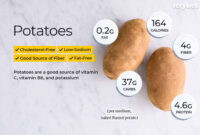Nutrition plays a crucial role in maintaining a healthy lifestyle. Knowing how much nutrition you need per day is essential for optimal health and well-being. In this article, we will provide you with a comprehensive guide on the recommended daily intake of essential nutrients, including proteins, carbohydrates, fats, vitamins, and minerals.
Proteins
Proteins are the building blocks of life and are vital for the growth, repair, and maintenance of body tissues. The recommended daily intake of protein varies depending on factors such as age, sex, and activity level. On average, adults should aim for about 0.8 grams of protein per kilogram of body weight. This means that if you weigh 70 kilograms, you should consume approximately 56 grams of protein per day.
Carbohydrates

Carbohydrates are the primary source of energy for the body. They are found in foods such as grains, fruits, vegetables, and legumes. The recommended daily intake of carbohydrates is about 45-65% of your total caloric intake. For example, if you consume 2000 calories per day, your carbohydrate intake should be around 225-325 grams.
Fats
Fats are essential for various bodily functions, including hormone production, insulation, and the absorption of fat-soluble vitamins. The recommended daily intake of fats is about 20-35% of your total caloric intake. It is important to choose healthy fats, such as monounsaturated and polyunsaturated fats, found in foods like avocados, nuts, and oily fish.
Vitamins
Vitamins are organic compounds that are required in small amounts for normal growth and maintenance of the body. There are 13 essential vitamins, each with its own specific functions. The recommended daily intake of vitamins varies depending on the type of vitamin. It is best to obtain vitamins from a balanced diet, including fruits, vegetables, whole grains, and lean proteins.
Minerals
Minerals are inorganic substances that are essential for various bodily functions, such as bone formation, fluid balance, and nerve function. The recommended daily intake of minerals also varies depending on the type of mineral. Examples of essential minerals include calcium, iron, and potassium. These minerals can be obtained from a diverse range of foods, including dairy products, red meat, leafy greens, and bananas.
The Importance of a Balanced Diet
Meeting your daily nutritional needs is crucial for overall health and well-being. A balanced diet that includes a variety of foods from different food groups is essential to ensure you get all the necessary nutrients. It is recommended to consult with a healthcare professional or a registered dietitian to determine your specific nutritional needs based on your individual circumstances.
Conclusion
Understanding how much nutrition you need per day is key to maintaining a healthy lifestyle. By following the recommended daily intake of essential nutrients, including proteins, carbohydrates, fats, vitamins, and minerals, you can ensure that your body functions optimally. Remember, a balanced diet is essential for meeting your nutritional needs, so make conscious choices when it comes to your daily food intake.


